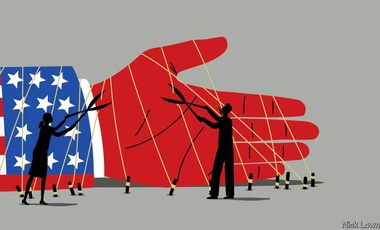
I’ve been doing a lot of research lately for a new book I’m writing that has nothing whatsoever to do with intelligence or the CIA, and I stumbled upon the biography of Frank Mankiewicz, the former Robert F. Kennedy speechwriter, who apparently had been a “secret backchannel” between President Gerald Ford and Cuban leader Fidel Castro in the mid-1970s.
Ford had his hands full cleaning up the mess that Richard Nixon had left him, and he wanted to try to improve U.S. relations with the Cubans.
In the event of failure, however, he didn’t want anybody to know that he had tried. Mankiewicz went to Havana a number of times, failed to produce a breakthrough, and stopped going.
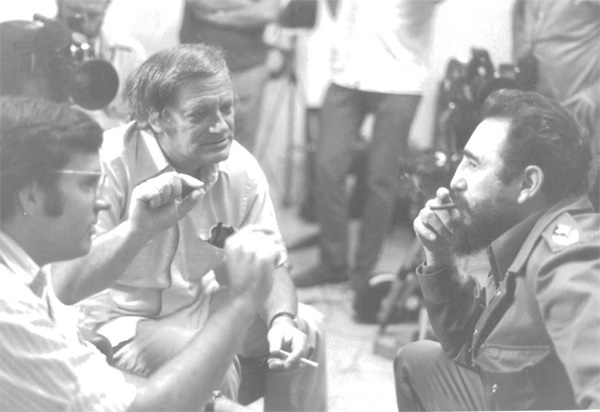
The story reminded me of two others, and it led me to consider—or perhaps to reconsider—the use of secret backchannels. They just don’t work.
Just after I joined the CIA in 1990, I was sent to a week-long conference in Annapolis, Maryland. There were only 12 of us analysts there, and our “guest of honor” was General Vernon Walters.
Walters was a legend at the CIA. A retired four-star general, he was a former Deputy Director of the CIA, Ambassador to the United Nations, and Ambassador to Germany.
Walters was fluent in French, Italian, Spanish, Portuguese, and German. And he loved to tell people that once, when he provided simultaneous translation for a Nixon speech in France, French President Charles DeGaulle told the U.S. President, “You gave a magnificent speech, but your interpreter was eloquent.”
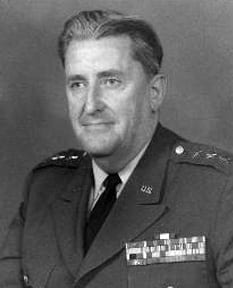
Walters had been a secret backchannel to Ho Chi Minh in the late 1960s, and he regaled us at that conference with stories of his negotiations with foreign leaders that had never made the press.
At dinner one night, I got up the courage to ask him a question. “General Walters,” I said. “Was there ever a time on one of these secret missions where you feared for your safety?” He answered quickly. “No,” then thought about it for a second. “Well,” he said, “maybe once.” I made a very secret trip to Havana once to meet with Castro. Only Nixon knew I was there. He hadn’t even told Kissinger. I thought, ‘Castro could kill me and nobody would know anything about it.’ Then I looked at him across the table and I thought, ‘I could take this scrawny son-of-a-bitch.”
In the end, Castro was perfectly hospitable. But whatever message Walters delivered to him didn’t change the poor state of U.S. relations with Cuba.
In the mid-1990s, I was assigned to the U.S. Embassy in Bahrain, where I worked as an economic officer.
There was a group in the capital Manama called the Bahrain-U.S. Banking Society. It was made up of, as you might imagine, U.S. and Bahraini bankers who would get together for dinner once a month and host speakers.
One day in 1995, they announced that they were giving a “lifetime achievement award” to famed banker David Rockefeller.
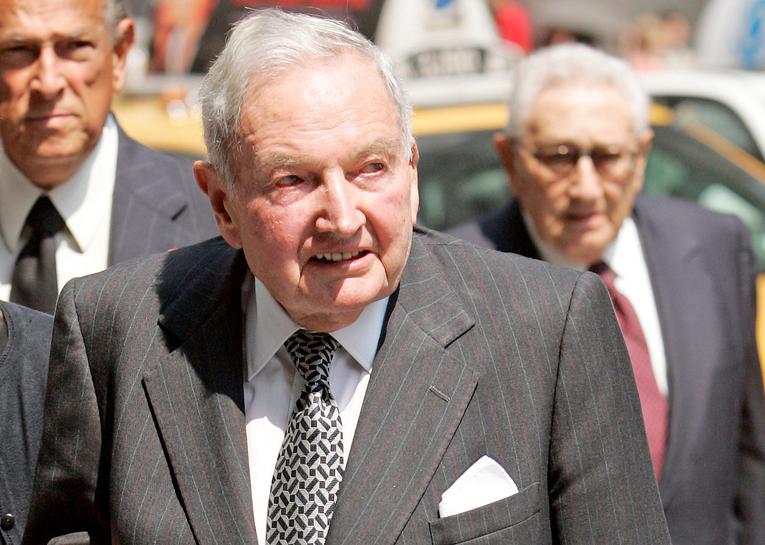
A month later, Rockefeller flew to Bahrain and the Amir, the country’s leader, hosted a major dinner for him. Everybody who was anybody was invited, including the entire cabinet, the diplomatic corps, and every major businessman in the country. There was a long receiving line, and when it was finally my turn to introduce myself to Mr. Rockefeller, I congratulated him on another award that he had recently received from an art group in New York. Our interaction lasted less than 10 seconds.
A few days later, my Ambassador asked if I had enjoyed the dinner. I said it was great, but I didn’t understand why somebody as important as David Rockefeller would fly halfway around the world to collect an award from a banking group that nobody ever heard of.
The Ambassador slapped his forehead. “John, John, John. You’re supposed to be the smart one,” he said. “David Rockefeller doesn’t care about the award. He’s the secret backchannel to Saddam Hussein. Collecting the award was just a cover stop for him.”
I couldn’t believe that I hadn’t seen it. I learned later that Rockefeller had indeed met with Saddam Hussein, he passed a message from Bill Clinton that Saddam absolutely, positively had to give up his weapons of mass destruction, and he went home. It was another failure—not because Rockefeller had done a bad job, so much as because Saddam didn’t have any weapons of mass destruction.
Over the course of my 15 years at the CIA, I heard myriad stories about secret encounters between Americans acting on behalf of this or that President and representatives of leaders around the world that we just didn’t get along with.
The bottom line was that these “secret” backchannels, “chance encounters,” and clandestine get-togethers simply don’t work. There’s no substitute for open, ongoing diplomacy.
I was reminded recently of something that Soviet Foreign Minister Andrei Gromyko once said. “I prefer 10 years of negotiations to one day of war.”
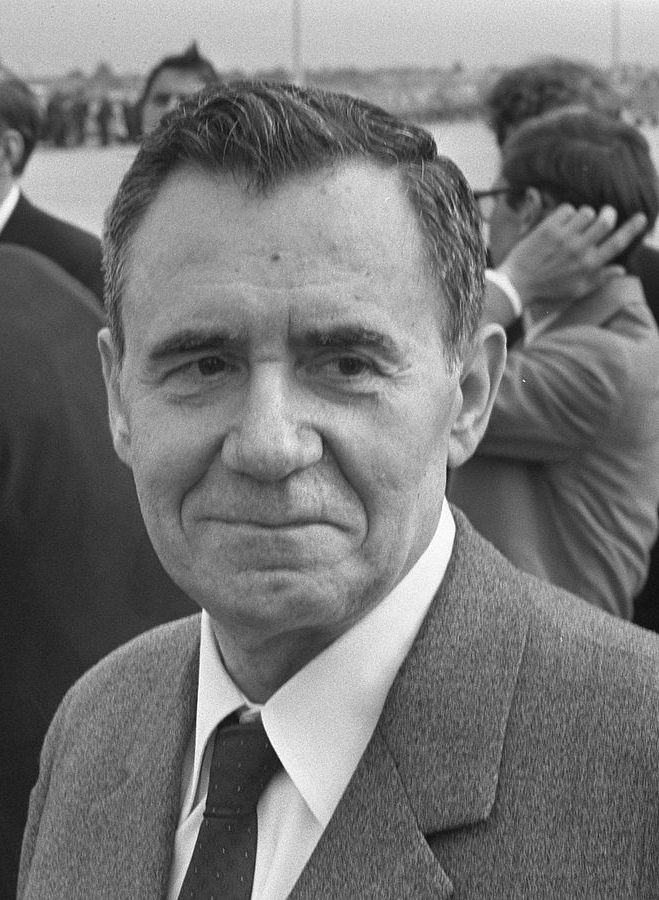
He was right. Diplomacy is hard work. It can’t be done with a handful of secret meetings. No matter what the issue, no matter what countries are involved, no matter how difficult “the other side” might be, diplomacy is the only legitimate response to the world’s problem. We could use some of it right now.

CovertAction Magazine is made possible by subscriptions, orders and donations from readers like you.
Blow the Whistle on U.S. Imperialism
Click the whistle and donate
When you donate to CovertAction Magazine, you are supporting investigative journalism. Your contributions go directly to supporting the development, production, editing, and dissemination of the Magazine.
CovertAction Magazine does not receive corporate or government sponsorship. Yet, we hold a steadfast commitment to providing compensation for writers, editorial and technical support. Your support helps facilitate this compensation as well as increase the caliber of this work.
Please make a donation by clicking on the donate logo above and enter the amount and your credit or debit card information.
CovertAction Institute, Inc. (CAI) is a 501(c)(3) non-profit organization and your gift is tax-deductible for federal income purposes. CAI’s tax-exempt ID number is 87-2461683.
We sincerely thank you for your support.
Disclaimer: The contents of this article are the sole responsibility of the author(s). CovertAction Institute, Inc. (CAI), including its Board of Directors (BD), Editorial Board (EB), Advisory Board (AB), staff, volunteers and its projects (including CovertAction Magazine) are not responsible for any inaccurate or incorrect statement in this article. This article also does not necessarily represent the views the BD, the EB, the AB, staff, volunteers, or any members of its projects.
Differing viewpoints: CAM publishes articles with differing viewpoints in an effort to nurture vibrant debate and thoughtful critical analysis. Feel free to comment on the articles in the comment section and/or send your letters to the Editors, which we will publish in the Letters column.
Copyrighted Material: This web site may contain copyrighted material the use of which has not always been specifically authorized by the copyright owner. As a not-for-profit charitable organization incorporated in the State of New York, we are making such material available in an effort to advance the understanding of humanity’s problems and hopefully to help find solutions for those problems. We believe this constitutes a ‘fair use’ of any such copyrighted material as provided for in section 107 of the US Copyright Law. You can read more about ‘fair use’ and US Copyright Law at the Legal Information Institute of Cornell Law School.
Republishing: CovertAction Magazine (CAM) grants permission to cross-post CAM articles on not-for-profit community internet sites as long as the source is acknowledged together with a hyperlink to the original CovertAction Magazine article. Also, kindly let us know at info@CovertActionMagazine.com. For publication of CAM articles in print or other forms including commercial internet sites, contact: info@CovertActionMagazine.com.
By using this site, you agree to these terms above.
About the Author
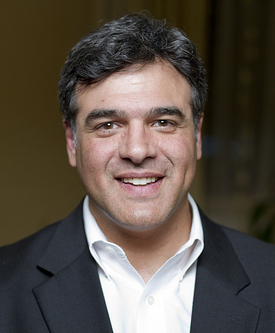
John Kiriakou was a CIA analyst and case officer from 1990 to 2004.
In December 2007, John was the first U.S. government official to confirm that waterboarding was used to interrogate al-Qaeda prisoners, a practice he described as torture.
Kiriakou was a former senior investigator for the Senate Foreign Relations Committee and a former counter-terrorism consultant. While employed with the CIA, he was involved in critical counter-terrorism missions following the terrorist attacks of September 11, 2001, but refused to be trained in so-called “enhanced interrogation techniques,” nor did he ever authorize or engage in such crimes.
After leaving the CIA, Kiriakou appeared on ABC News in an interview with Brian Ross, during which he became the first former CIA officer to confirm the existence of the CIA’s torture program. Kiriakou’s interview revealed that this practice was not just the result of a few rogue agents, but was official U.S. policy approved at the highest levels of the government.
Kiriakou is the sole CIA agent to go to jail in connection with the U.S. torture program, despite the fact that he never tortured anyone. Rather, he blew the whistle on this horrific wrongdoing.
John can be reached at: jkiriakou@mac.com.






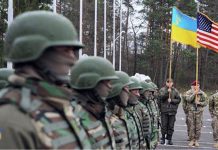

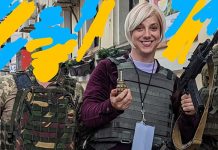


[…] Diplomacy is Hard Work: We Could Use Some of it Right Now, by John Kiriakou […]
Diplomats are an extension of their Government. For example, a Trade Attaché needs to promote his country’s exportable goods, of the killing variety included. The Military Attaché concentrates on big destroyer vehicles, air fighters, warships, drones, tanks, etc. If two countries plan snd agree on a war against each other, the Ambassador must ensure the war happens. But…. as a ‘diplomat’ he has to play the comedy he will ‘avert’ the war from happening. .
I agree with you that the war industry is a big problem because it is so large. That being said hockey players do not buy hockey equipment because they want the hockey equipment industry to flourish. It is the other way around. Hockey equipment companies are manufacturing equipment because there is a big demand for hockey equipment.
Two comments: (1) As to the purpose of Rockefeller’s putative secret meeting with Saddam, it doesn’t wash that the purpose was to ‘urge Saddam to give up WMDs,’ given that, to provide a pretext for the 2003 US invasion, the US **needed** the public to **believe** that Saddam had WMDs, despite the fact that most of the WMDs (sold to Saddam by US and German comnpanies) had alredy ben destroed by 1995. I personally spoke with UN weapons inspector Rolf Ekaus in 1992 and in 2003 with UN weapons inspector Scott Ritter. Moreover, Bush Sr. and Hillary Clinton sat on the board of directors Kennemetal/LaFarge America, one of the companies selling WMD chemicals to Saddam in the 1980s; they continued to sell them even after Gulf War I started. Hence it’s laughable to think that Rockefeller’s putative secret meeting with Saddam was to ‘urge Saddam to give up WMDs.’ Such a meeting likely had a entitrely different purpose, upon which I can only speculate. It is known that the US suspended the ‘no-fly zone’ order specifically to allow Saddam to bomb Shia rebels in the south, which bombing was later ‘condemned’ by the US. The US government needed as many manufactured pretexts as possible to launch the 2003 invasion. Earlier, to create a pretext for Gulf War I, the US encouraged Kuwait to slant-drill into Iraq’s oil fields, then three (count ‘em, 3) representative of Bush Sr’s State Department (John Kelly, Edward Gnehm and April Glaspie) all assured Saddam that the US would not interfere with (i.e., gave the wink-and-a-nod “green light” to) Saddam’s (expected) punitive invasion of Kuwait.
(2) Fidel Castro, via Cuban intelligence operatives in the US, warned the Reagan camp of a planned assassination attempt on Reagan while he was traveling in the Midwest. This was separate from the assassination attempt by John Hinkley, whom we are told to ignore, was a Bush family friend.
Reminds me of Ray McGovern’s helpless hand-wringing. The current edition of the USA (past three decades) has ZERO interest in honest diplomacy with Russia (or anyone opposed to Western empire), whether behind the scenes or through professional mechanisms entailed in the more typical state to state relationships. Diplomacy is dead. To pretend otherwise is a waste of space (or brain space)
Kiriakou maybe a case of ‘we don’t people too smart to work for us’ ?
https://therooster.com/blog/connecticut-police-department-says-applicant-too-smart-be-cop
Of course, but not only does the USA not believe in diplomacy, or negotiations-it only uses force and bullying- but is does not want peace or cooperation, only war and violence. Sad but true. Look at the present situation- why not give Russia security guarantees? Why is NATO still “needed”? Why can we not cooperate with China on an equal footing, and let “sovereign countries” decide on their own allies or be non-aligned??